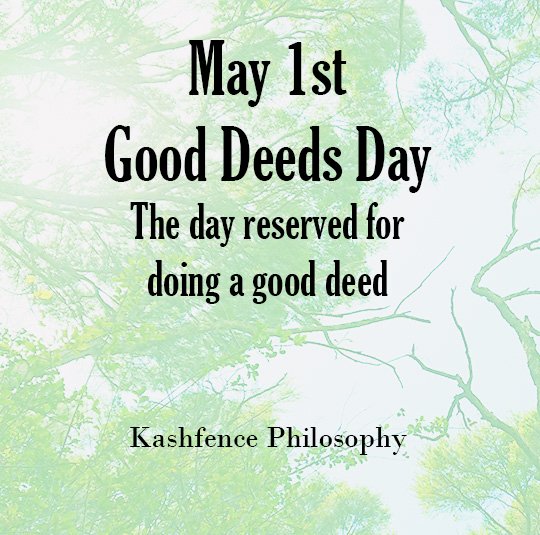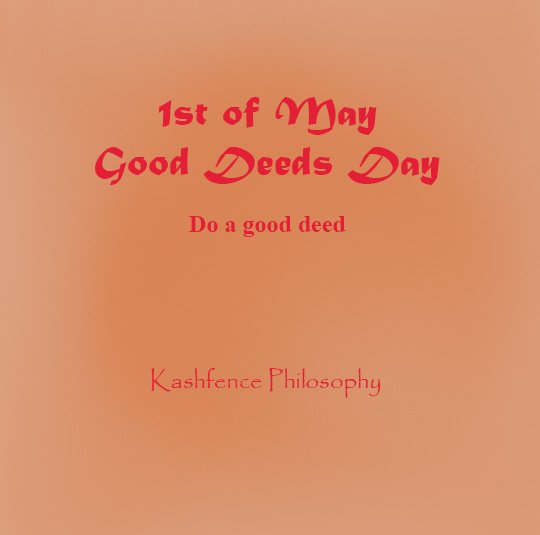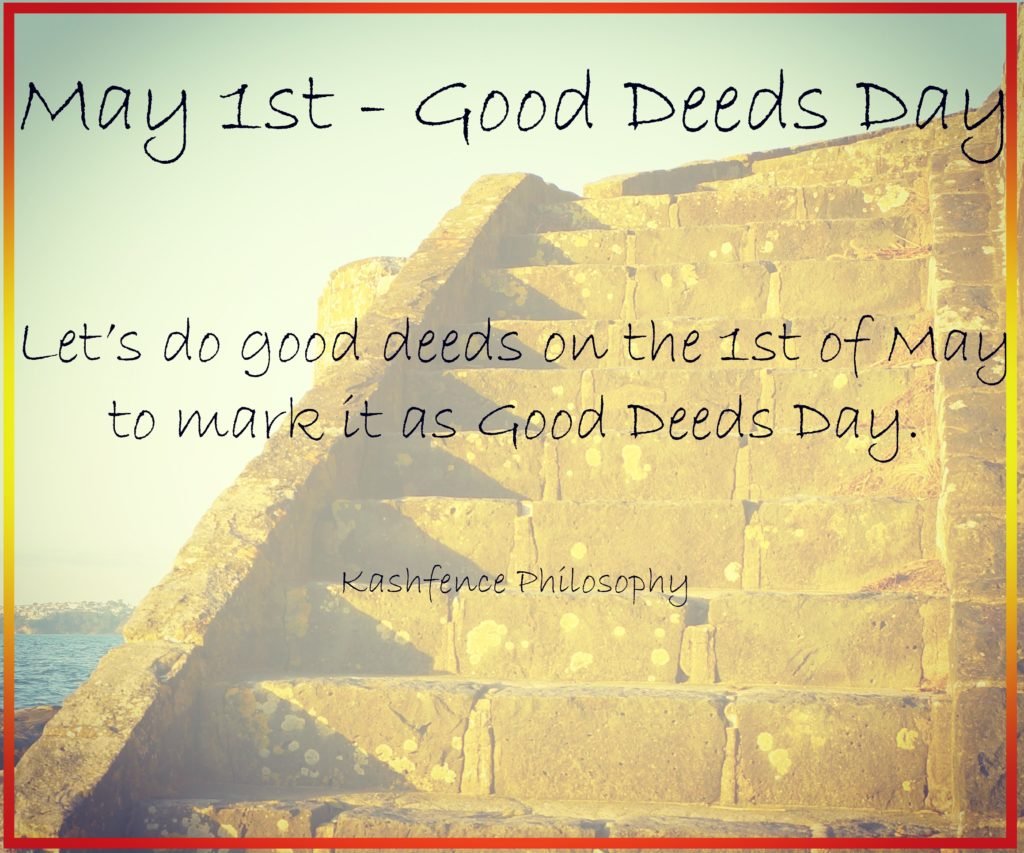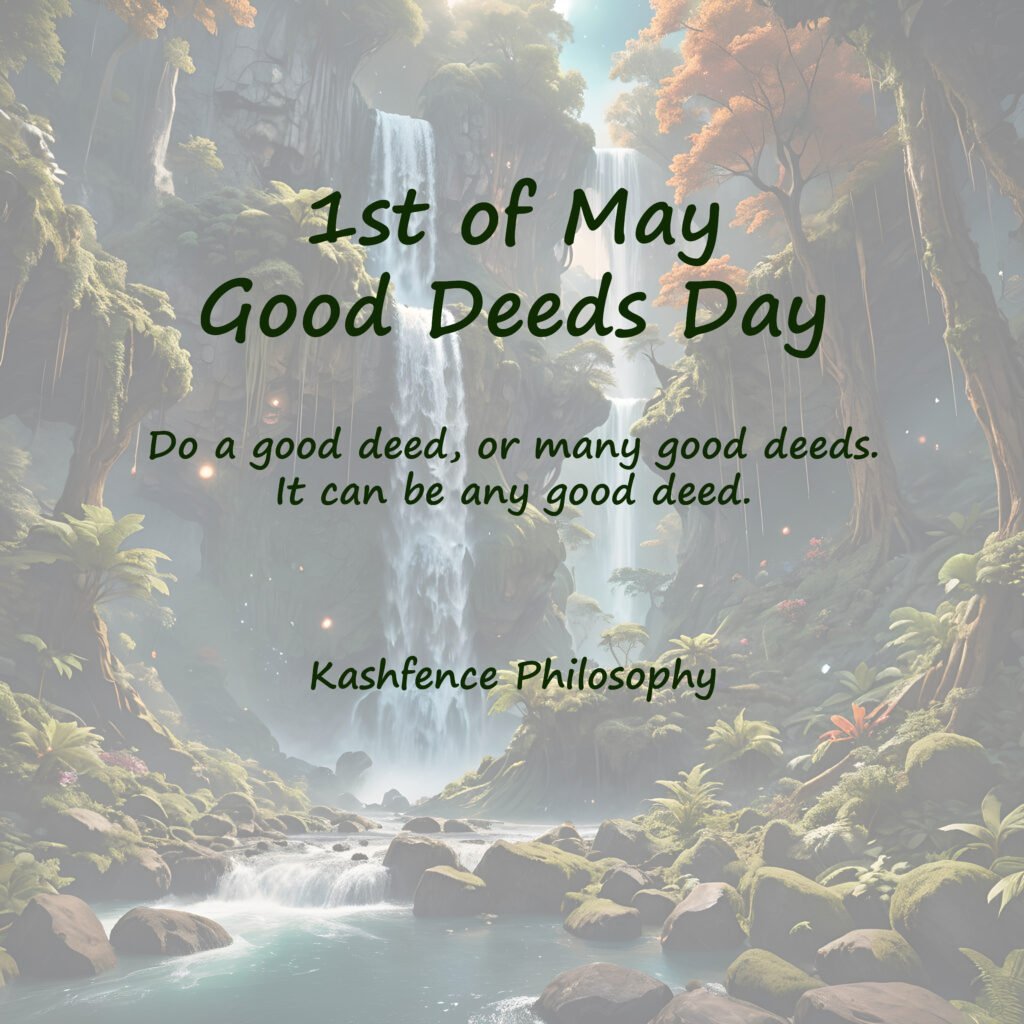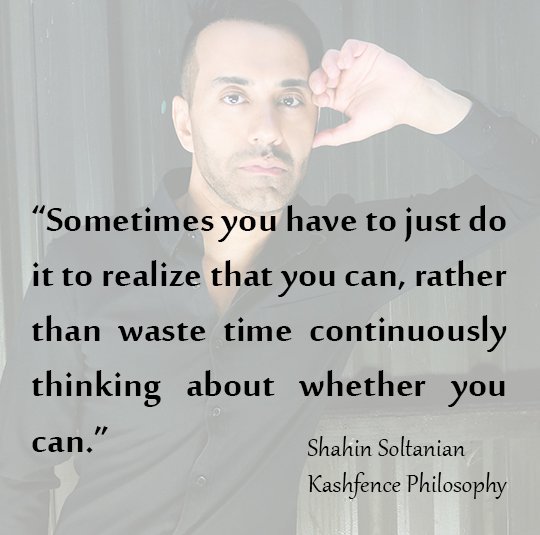
“Sometimes you have to just do it to realize that you can, rather than waste time continuously thinking about whether you can.”
Dr Shahin Soltanian
Kashfence Philosophy
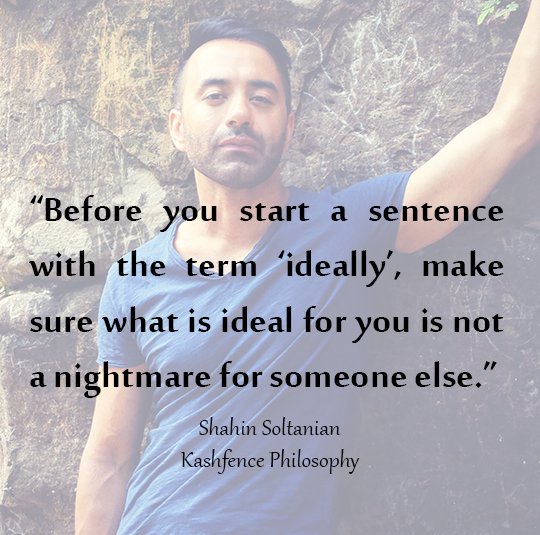
“Before you start a sentence with the term ‘ideally’, make sure what is ideal for you is not a nightmare for someone else.”
Dr Shahin Soltanian
Kashfence Philosophy
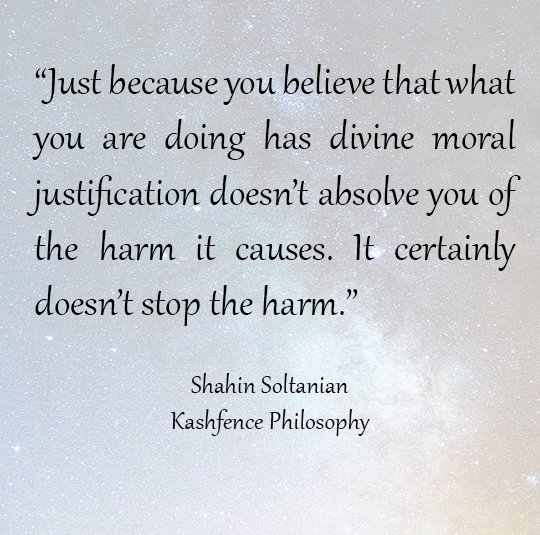
“Just because you believe that what you are doing has divine moral justification doesn’t absolve you of the harm it causes. It certainly doesn’t stop the harm.”
Dr Shahin Soltanian
Kashfence Philosophy

Dr Shahin Soltanian
Kashfence Philosophy

Shahin Soltanian
Kashfence Philosophy


Spend some time with your family and/or friends
Kashfence Philosophy
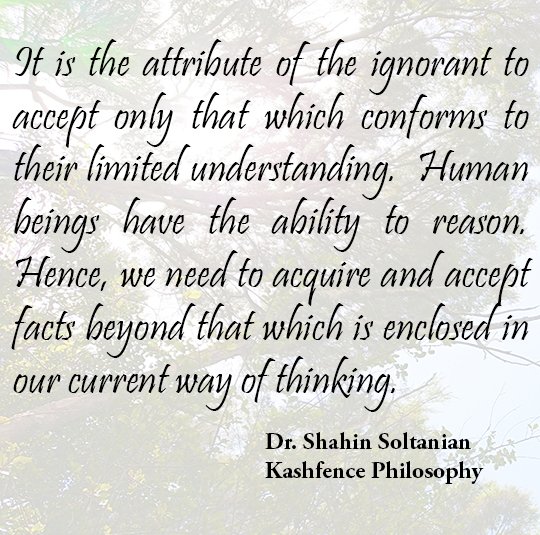
Dr Shahin Soltanian
Kashfence Philosophy
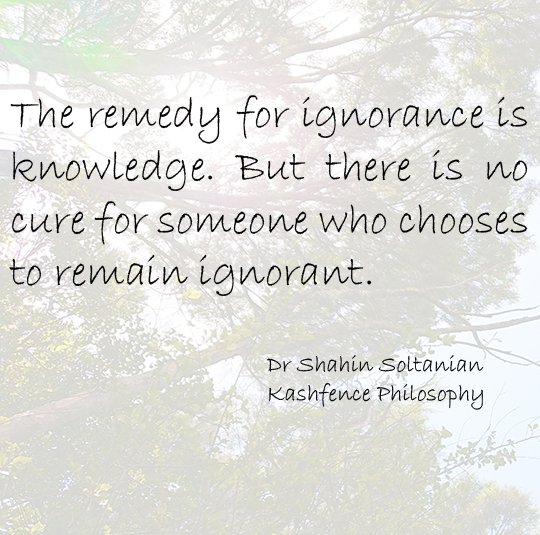
Dr Shahin Soltanian
Kashfence Philosophy
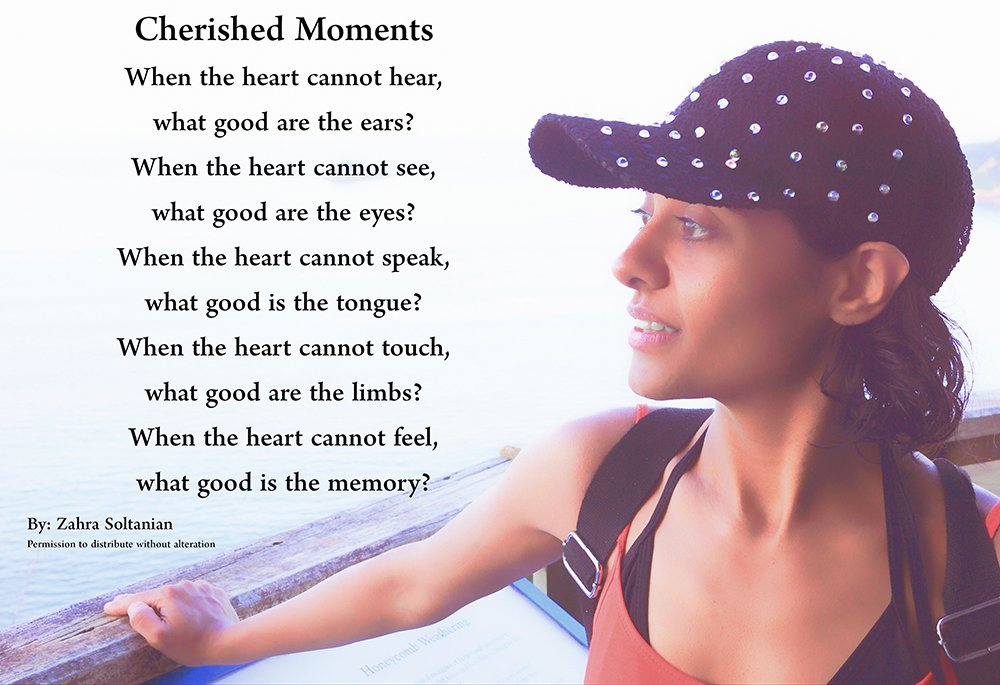
When the heart cannot hear,
what good are the ears?
When the heart cannot see,
what good are the eyes?
When the heart cannot speak,
what good is the tongue?
When the heart cannot touch,
what good are the limbs?
When the heart cannot feel,
what good is the memory?
By: Zahra Soltanian

Dr Shahin Soltanian
Kashfence Philosophy
The Nightingale and the Jungle Fire
The following tale has in some way been mentioned in different world mythologies. The following novel version takes into consideration the main moral of the story.
Due to a lightning incident parts of a jungle had caught fire. In the midst of all the animals a single nightingale was attempting to put out the fire. It would take a drop of water with its beak, take it towards the fire and drop it at the corner. It would only drop the water at the corner of the fire that had engulfed part of the jungle because it was too hot for the nightingale to fly over it. It repeatedly did this until the other animals with a condescending tone said to the nightingale, “What use is it? You are too small and the water you carry too little to make any difference. You can never put out the fire at this rate.”
The nightingale turned to them and said, “You are absolutely correct. However, this is to the best of my ability. I am making the utmost effort according to what I am capable so that I don’t feel like I have done nothing. Maybe if everyone else also did what they are capable of or made any effort then we could all put out this fire.”
The moral of the story is that everyone is responsible for their own actions and whether they will choose to do nothing or be an active part of making a change for the better. Things might not change with the action of one person but maybe that one person can be an example to inspire others to also make an effort.
Kashfence Philosophy
Fable of the Farmer, his Father and their Donkey
There is an ancient fable that attempts to explain what would be the result of basing your life on other people’s opinions. The story is not necessarily intended for the purpose of discouraging a person from listening to and accepting beneficial advice and constructive criticism. Rather, it can be used to represent the idea that if someone changes the way they are doing something only for the reason of pleasing others, especially with so many different opinions, it will end with undesirable consequences. There will always be someone who disagrees or will pick on something to criticize. It could also be used to explain the consequences of criticizing others without a good reason other than one’s personal arbitrary opinions. The story is narrated in many different cultures in slightly different variations. The following is one version:
There was farmer that didn’t have much wealth but his farm and one donkey. His old father lived with him and his family. Every once in a while the farmer and his father would take their crops to town to sell in the farmer’s market. The market was about half a day’s journey. So the farmer stacked up his donkey and with his father went towards the farmer’s market. Both he and his father were walking beside the donkey when they were passing a village. The people of that village started talking and said, “Look at those two! They are both walking when they have a donkey to carry them. Why doesn’t one of them just ride on the donkey? They must not be very intelligent.”
The farmer and his father felt ashamed that their intelligence was questioned. The farmer told his old father to sit on the donkey instead of walking so that he can bare the long journey. He walked beside the donkey during their journey towards the farmer’s market. On the way to the market, they were passing a village. The villagers started talking about them saying, “Look at that father! How can he sit on the donkey while his son looks tired while walking? What kind of a father is he?!”
So the father and the son felt ashamed and decided to switch places. The son started riding the donkey whereas the father walked alongside. While passing another village, the residents of that village started talking saying, “Look at that boy! He is riding on the donkey with no care in the world when his old father who has worked all his life to bring him up has to walk. What kind of a son is he?”
So the father and the son felt ashamed again and decided it was better if they both rode the donkey and in this way no one can criticize them. When they were passing the next town on their way to the market the residents of that town started talking and saying, “Look at those cruel people! They are both riding that donkey with their crop on its back. Don’t they care at all about its welfare?”
Fed up with all the criticism they decided to carry the donkey instead. They used a stick and tied the donkey with all their crops and started carrying the donkey and the crop when they passed another town. The people of that town started mocking them saying, “Look at those idiots! They are carrying the donkey instead of the donkey carrying them. How stupid can you get?!” They were halfway through a bridge and upset about what had occurred until that time. Trying to put the donkey down so that the mocking stops the donkey and the crops slipped from their hands and fell of the bridge and the donkey died. They were left without a crop and with no donkey. On that day they realized that changing the way a person does things just for the purpose of pleasing everyone else will not have a good outcome.
Kashfence Philosophy

